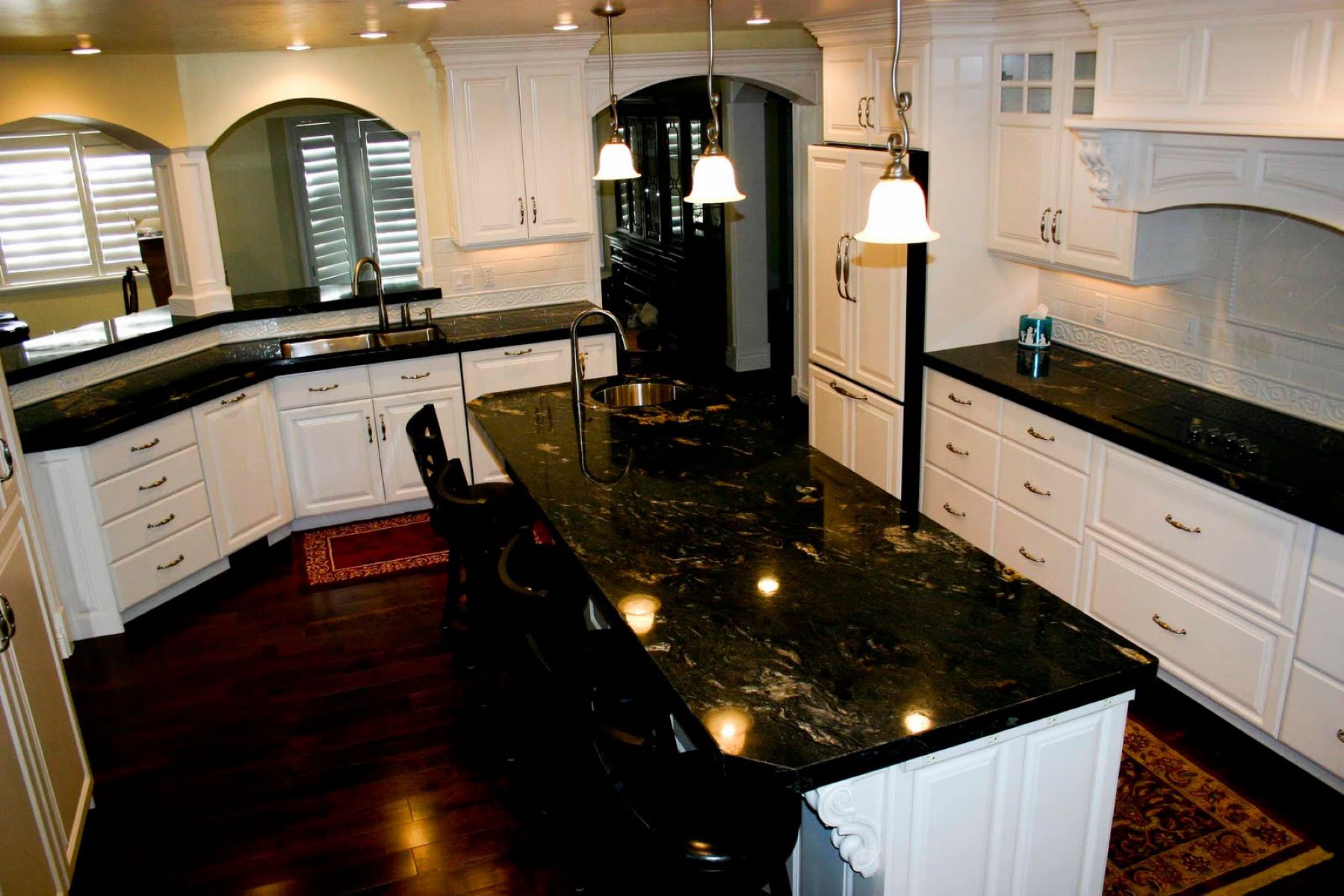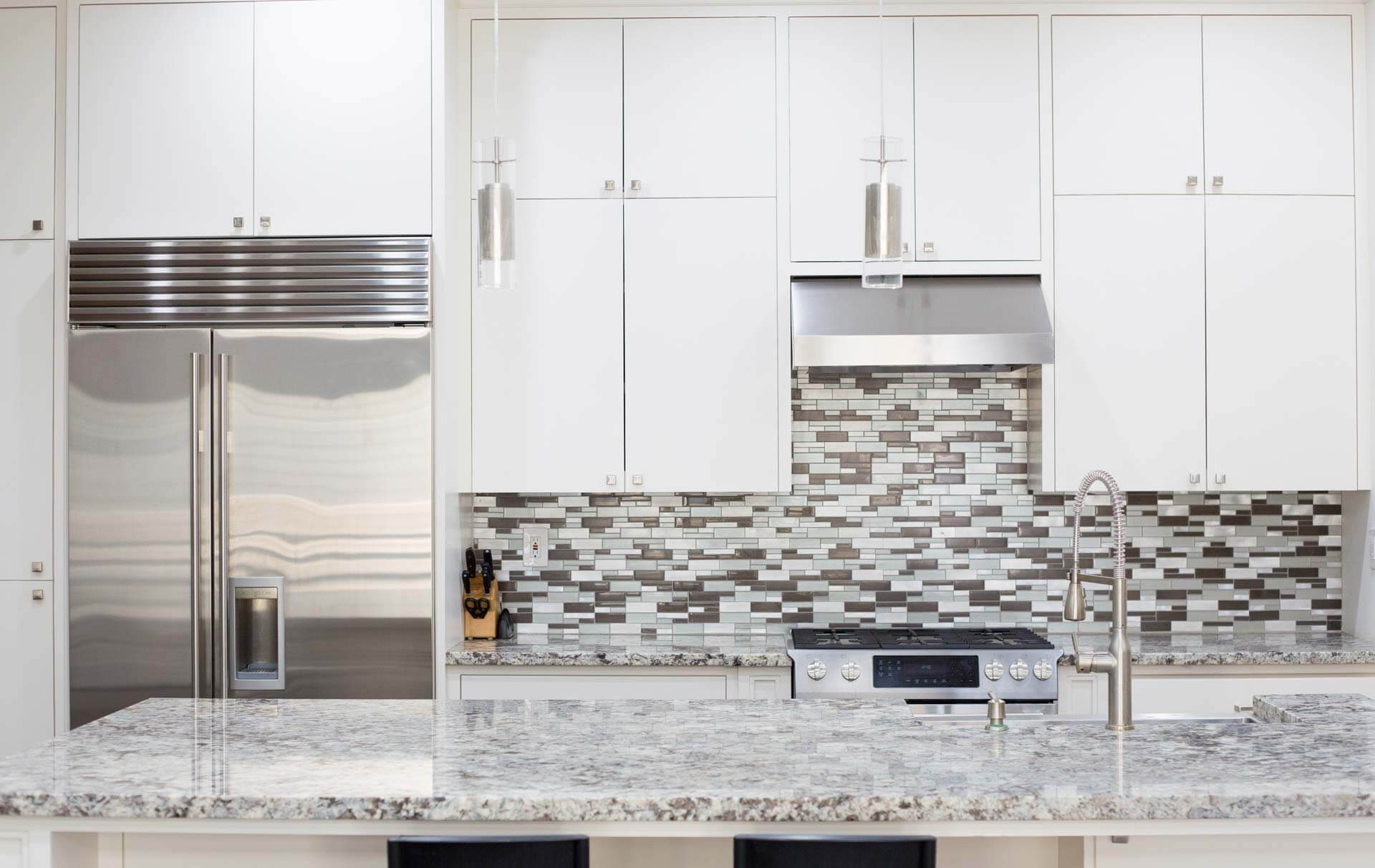

Articles
How Much Does Granite Countertops Weigh
Modified: February 23, 2024
Learn about the weight of granite countertops in our informative articles. Find out how much they weigh and what factors can influence the weight.
(Many of the links in this article redirect to a specific reviewed product. Your purchase of these products through affiliate links helps to generate commission for Storables.com, at no extra cost. Learn more)
Introduction
Granite countertops are a popular choice for homeowners due to their durability, aesthetic appeal, and the wide range of colors and patterns available. However, one important factor that often gets overlooked is the weight of these countertops. Understanding the weight of granite countertops is crucial for several reasons, including installation planning, structural considerations, and transportation logistics.
In this article, we will explore the factors that affect the weight of granite countertops, how to determine their weight, and provide insights into the average weight of granite countertops. Additionally, we will compare the weight of granite countertops to other materials and provide tips for handling and installing them. By the end of this article, you will have a comprehensive understanding of the weight aspect when it comes to granite countertops.
So, let’s delve into the world of granite countertops and uncover the significant role that weight plays!
Key Takeaways:
- The weight of granite countertops is influenced by factors like thickness, size, density, and edge profile. Understanding these factors is crucial for installation planning and ensuring structural stability.
- On average, granite countertops weigh between 25 and 30 pounds per square foot. Comparing their weight with other materials, granite offers a good balance of weight and durability for countertop applications.
Factors Affecting the Weight of Granite Countertops
Several factors contribute to the weight of granite countertops, and understanding these factors is essential for estimating and planning installation logistics. Here are some key elements that affect the weight of granite countertops:
- Thickness: The thickness of the granite slab is a primary determinant of its weight. Common thickness options for granite countertops range from 2cm (3/4″) to 3cm (1-1/4″). The thicker the slab, the heavier the countertop will be.
- Size and Shape: The size and shape of the countertop also influence its weight. Larger and more complex-shaped countertops require larger slabs and may have additional support requirements, increasing their overall weight.
- Density: The density of the specific granite slab used plays a crucial role in determining the weight of the countertop. The density varies depending on the type of granite and its composition. Generally, darker colored granite tends to be denser and heavier than lighter-colored granite.
- Edge Profile: The edge profile of the granite countertop can add weight to the overall installation. Different edge profiles, such as bullnose, bevel, or ogee, can slightly increase the weight of the countertop due to the additional material required for the profile.
- Reinforcements: In some cases, granite countertops may require additional reinforcements, such as steel bars or plywood, to provide structural support. These reinforcements add weight to the countertop but are necessary for ensuring its stability and longevity.
It’s important to consider these factors when estimating the weight of granite countertops. Consulting with a professional or supplier can help provide accurate weight estimates and determine any additional considerations for your specific countertop installation.
Determining the Weight of Granite Countertops
Calculating the weight of granite countertops is essential for various reasons, such as determining the appropriate support structure and ensuring safe transportation and installation. While the weight of granite countertops can vary based on several factors, there are specific steps you can take to determine their weight. Here’s how:
- Measure the Dimensions: Start by measuring the length, width, and thickness of the granite countertop. Use a tape measure or ruler to get accurate measurements in inches or centimeters. Make sure to measure all sides of the countertop, including any overhangs or cutouts for sinks or cooktops.
- Calculate the Surface Area: Multiply the length by the width to calculate the surface area of the countertop. For example, if the length is 72 inches and the width is 36 inches, the surface area would be 2,592 square inches.
- Convert to Square Feet: Divide the surface area by 144 to convert it to square feet. In the example above, the surface area in square feet would be 18 square feet (2592/144 = 18).
- Determine the Density: Contact the supplier or refer to the specific granite type to find the density of the granite. The density is typically measured in pounds per cubic foot (lb/ft³) or kilograms per cubic meter (kg/m³).
- Calculate the Weight: Multiply the surface area (in square feet) by the thickness (in feet) and then multiply that by the density (in lb/ft³). The resulting number will give you the approximate weight of the granite countertop. For example, if the surface area is 18 square feet, the thickness is 1.25 feet, and the density is 180 lb/ft³, the weight would be 405 lb (18 * 1.25 * 180 = 405).
It’s essential to note that the weight calculated using this method is an approximation, as there may be slight variations in density within the granite slab. Additionally, factors like reinforcements, edge profiles, and additional features can impact the overall weight. Consulting with a professional or supplier is recommended for precise weight calculations specific to your granite countertop.
Average Weight of Granite Countertops
The weight of granite countertops can vary depending on various factors, as discussed earlier. However, it is helpful to have an understanding of the average weight range to estimate the load-bearing capacity of your cabinets, plan for transportation, and ensure proper installation. On average, granite countertops weigh between 25 and 30 pounds per square foot.
To provide a more specific range, let’s consider the common thickness options for granite countertops. A 2cm (3/4″) thick granite slab weighs approximately 12 to 15 pounds per square foot. On the other hand, a 3cm (1-1/4″) thick granite slab weighs around 18 to 20 pounds per square foot.
Keep in mind that these weights are averages, and the actual weight of your granite countertop may vary based on the specific granite type, density, size, and additional factors unique to your installation. When in doubt, consult with your supplier or contractor to determine the precise weight of your granite countertop.
It is crucial to consider the weight of a granite countertop when planning your kitchen or bathroom design. Ensure that your cabinets, support structures, and flooring can accommodate the weight of the countertop to avoid any structural issues down the line. Additionally, consult with a professional installer to determine if any reinforcements or additional support are required based on the weight of your countertop.
By understanding the average weight range of granite countertops, you can make informed decisions during the design, planning, and installation process, ensuring the longevity and stability of your countertops.
Granite countertops typically weigh around 18 to 20 pounds per square foot. When planning for installation, be sure to consider the weight and ensure that your cabinets and support structures can handle it.
Comparison of Granite Countertop Weights with Other Materials
When choosing a countertop material, weight can be a determining factor, especially if you have specific load-bearing requirements or limitations. Let’s compare the weight of granite countertops with some other commonly used countertop materials:
- Laminate: Laminate countertops are relatively lightweight and weigh around 1.5 to 3 pounds per square foot. They are a popular choice for their affordability and easy installation, but they are not as durable or heat-resistant as granite.
- Quartz: Quartz countertops, known for their durability and low maintenance, weigh slightly more than granite. On average, they weigh between 18 and 24 pounds per square foot. However, the weight can vary based on the thickness and specific brand of quartz used.
- Marble: Marble countertops, prized for their elegance and timeless beauty, are similar in weight to granite. They typically weigh between 25 and 30 pounds per square foot. Like granite, marble is a natural stone and varies in density based on the type of marble used.
- Concrete: Concrete countertops offer a unique and customizable design, but they are one of the heaviest countertop options. Depending on the thickness and specific mix, concrete countertops can weigh between 18 and 25 pounds per square foot.
- Butcher Block: Butcher block countertops, made from wood strips bonded together, are relatively lightweight. On average, they weigh between 10 and 20 pounds per square foot. The weight may vary depending on the wood species used and the thickness of the countertop.
Comparing granite countertops with other materials, it is clear that they fall within the average weight range. While there may be slight variations, granite countertops offer a decent weight-to-durability ratio. It’s essential to consider the weight of the countertop in relation to the structural integrity of your cabinets and support structures.
Remember, the weight of the countertop is just one aspect to consider when choosing a material. Factors such as aesthetic appeal, maintenance requirements, and budget should also be taken into account. Consulting with a professional can help you make an informed decision based on your specific needs and preferences.
Tips for Handling and Installing Granite Countertops
Handling and installing granite countertops requires careful consideration and attention to detail to prevent damage to the countertops and ensure a successful installation. Here are some useful tips to keep in mind:
- Prepare the Space: Before installing granite countertops, ensure that the cabinets and support structures are properly reinforced to accommodate the weight of the countertops. Clear the workspace and remove any obstacles that may hinder the installation process.
- Use Proper Lifting Techniques: Granite countertops can be quite heavy, so it’s important to use proper lifting techniques to avoid injury and prevent damage to the countertops. Use lifting straps or suction cup lifters to provide a secure grip and distribute the weight evenly during transportation and installation.
- Protect the Countertops: Place protective coverings or blankets over the countertops during transportation and installation to prevent scratches, chips, or other damage. Avoid placing heavy tools or objects directly on the countertops to prevent any impact or pressure that could cause cracks or fractures.
- Secure the Countertops: Use high-quality, waterproof adhesive and secure the countertops to the cabinets or support structures. Ensure that the countertops are level and flush against the walls, leaving no gaps or uneven areas. This will provide stability and prevent any movement or shifting over time.
- Seal the Countertops: After installation, apply a high-quality granite sealer to protect the countertops from stains and liquid absorption. Follow the manufacturer’s instructions for the specific sealer and reapply as recommended to maintain the protective barrier. Regular sealing will help prolong the life and beauty of your granite countertops.
- Maintain Proper Cleaning and Care: To keep your granite countertops in top condition, follow the recommended cleaning and maintenance practices. Use non-abrasive cleaners and avoid using harsh chemicals or abrasive materials that can damage the surface. Wipe up spills promptly and avoid placing hot pans directly on the countertops to prevent heat damage.
- Regular Inspections: Periodically inspect your granite countertops for any signs of damage, cracks, or shifting. Address any issues immediately to prevent further damage and ensure the longevity of your countertops.
Following these tips will help ensure a smooth and successful handling and installation process for your granite countertops. If you are unsure or inexperienced with countertop installation, it is recommended to seek the assistance of a professional installer to ensure the best results.
Conclusion
Understanding the weight of granite countertops is crucial when it comes to planning, installing, and maintaining these beautiful and durable surfaces in your home. Factors such as thickness, size, density, edge profiles, and additional reinforcements all contribute to the overall weight of granite countertops.
By following the steps to determine the weight of granite countertops, you can estimate their load-bearing capacity, plan for installation logistics, and ensure the structural integrity of your cabinets and support structures. Additionally, knowing the average weight of granite countertops allows you to compare it with other countertop materials and make informed decisions based on your specific needs and preferences.
When handling and installing granite countertops, it is important to use proper lifting techniques, protect the countertops from damage, secure them to the cabinets or support structures, and apply a quality sealer to maintain their beauty and longevity. Regular cleaning, care, and inspections will help preserve the appearance and functionality of your granite countertops for years to come.
Remember, if you are uncertain about any aspect of handling or installing granite countertops, it is wise to seek the assistance of a professional installer who has the expertise and experience to ensure a smooth and successful installation.
In conclusion, by understanding the weight factors, proper handling techniques, and installation best practices, you can enjoy the elegance and durability of granite countertops in your home for many years. So go ahead and embrace the beauty and strength of granite countertops as you create your dream kitchen or bathroom space!
Frequently Asked Questions about How Much Does Granite Countertops Weigh
Was this page helpful?
At Storables.com, we guarantee accurate and reliable information. Our content, validated by Expert Board Contributors, is crafted following stringent Editorial Policies. We're committed to providing you with well-researched, expert-backed insights for all your informational needs.















0 thoughts on “How Much Does Granite Countertops Weigh”